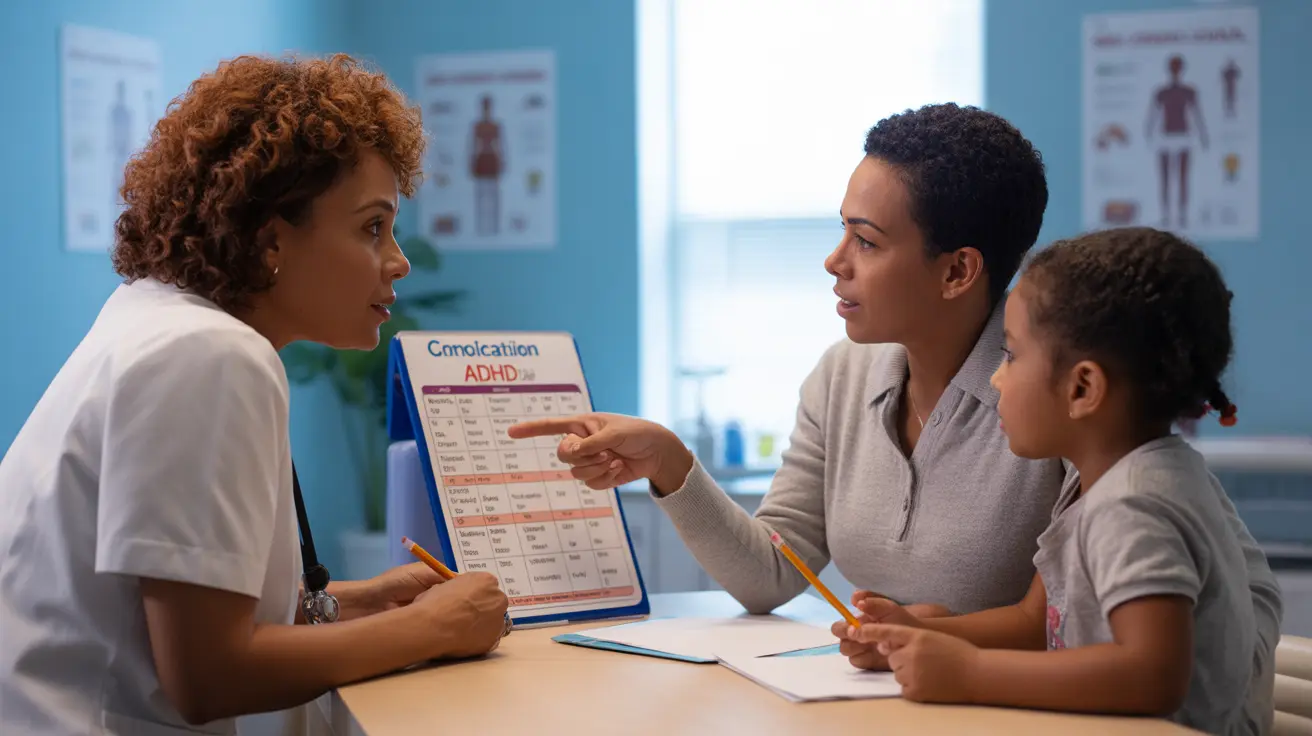Navigating ADHD medication choices for your child can feel overwhelming. As a parent, you want to make informed decisions that will help your child succeed while ensuring their safety and well-being. This comprehensive guide will help you understand the various medication options available and how to make the best choice for your child.
Types of ADHD Medications for Children
ADHD medications generally fall into two main categories: stimulants and non-stimulants. Each type has specific benefits and considerations that should be carefully evaluated with your child's healthcare provider.
Stimulant Medications
Stimulant medications are typically the first-line treatment for ADHD in children. These medications work by increasing dopamine and norepinephrine levels in the brain, helping improve focus and reduce impulsivity. Common options include:
- Methylphenidate-based medications (Ritalin, Concerta)
- Amphetamine-based medications (Adderall, Vyvanse)
Non-Stimulant Medications
Non-stimulant medications offer an alternative for children who don't respond well to stimulants or experience significant side effects. These include:
- Atomoxetine (Strattera)
- Guanfacine (Intuniv)
- Clonidine (Kapvay)
Choosing the Right Medication
The best ADHD medication for your child depends on several factors, including their age, specific symptoms, overall health, and lifestyle. Your healthcare provider will consider:
- The severity of ADHD symptoms
- Presence of co-existing conditions
- Family medical history
- Daily schedule and routine
- Previous medication experiences
Managing Side Effects
While ADHD medications can be highly effective, they may cause side effects that require careful monitoring. Common side effects include:
- Decreased appetite
- Sleep difficulties
- Mood changes
- Headaches
- Stomach upset
Many side effects can be managed through dose adjustments, timing modifications, or switching medications. Working closely with your healthcare provider is essential for finding the right balance.
Treatment Monitoring and Adjustment
Regular monitoring helps ensure your child's medication remains effective and appropriate. Key aspects to track include:
- Behavioral changes
- Academic performance
- Social interactions
- Physical health indicators
- Sleep patterns
- Appetite and growth
Beyond Medication: Comprehensive Treatment Approaches
Medication often works best when combined with other treatment strategies, such as:
- Behavioral therapy
- Educational support
- Parent training programs
- Lifestyle modifications
- Regular exercise
- Healthy sleep habits
Frequently Asked Questions
What is the best ADHD medication for kids, and how does it compare to other options?
There is no single "best" ADHD medication for all children. Stimulant medications like methylphenidate and amphetamines are typically tried first due to their proven effectiveness. Non-stimulant options may be preferred for some children based on their individual needs and response to treatment.
What are the most common side effects of ADHD medication in children, and how can they be managed?
Common side effects include decreased appetite, sleep issues, and mood changes. These can often be managed by adjusting medication dosage or timing, ensuring proper nutrition, maintaining consistent sleep schedules, and regular communication with healthcare providers.
Do children with ADHD need to take medication forever, or is it possible to stop at some point?
Some children may not need medication indefinitely. The need for medication can change as children develop and learn coping strategies. Any decision to stop medication should be made in consultation with healthcare providers and carefully monitored.
Are there effective non-medication treatments or alternatives for managing ADHD symptoms in kids?
Yes, several non-medication approaches can be effective, including behavioral therapy, educational support, parent training, regular exercise, and structured routines. These methods can be used alone or in combination with medication for optimal results.
How do I know if my child's ADHD medication is working, and what should I watch for when monitoring treatment?
Effective medication should improve focus, reduce impulsivity, and enhance academic performance without causing significant side effects. Monitor behavior at home and school, academic progress, social interactions, and physical health indicators. Regular feedback from teachers and healthcare providers is crucial for assessing medication effectiveness.




